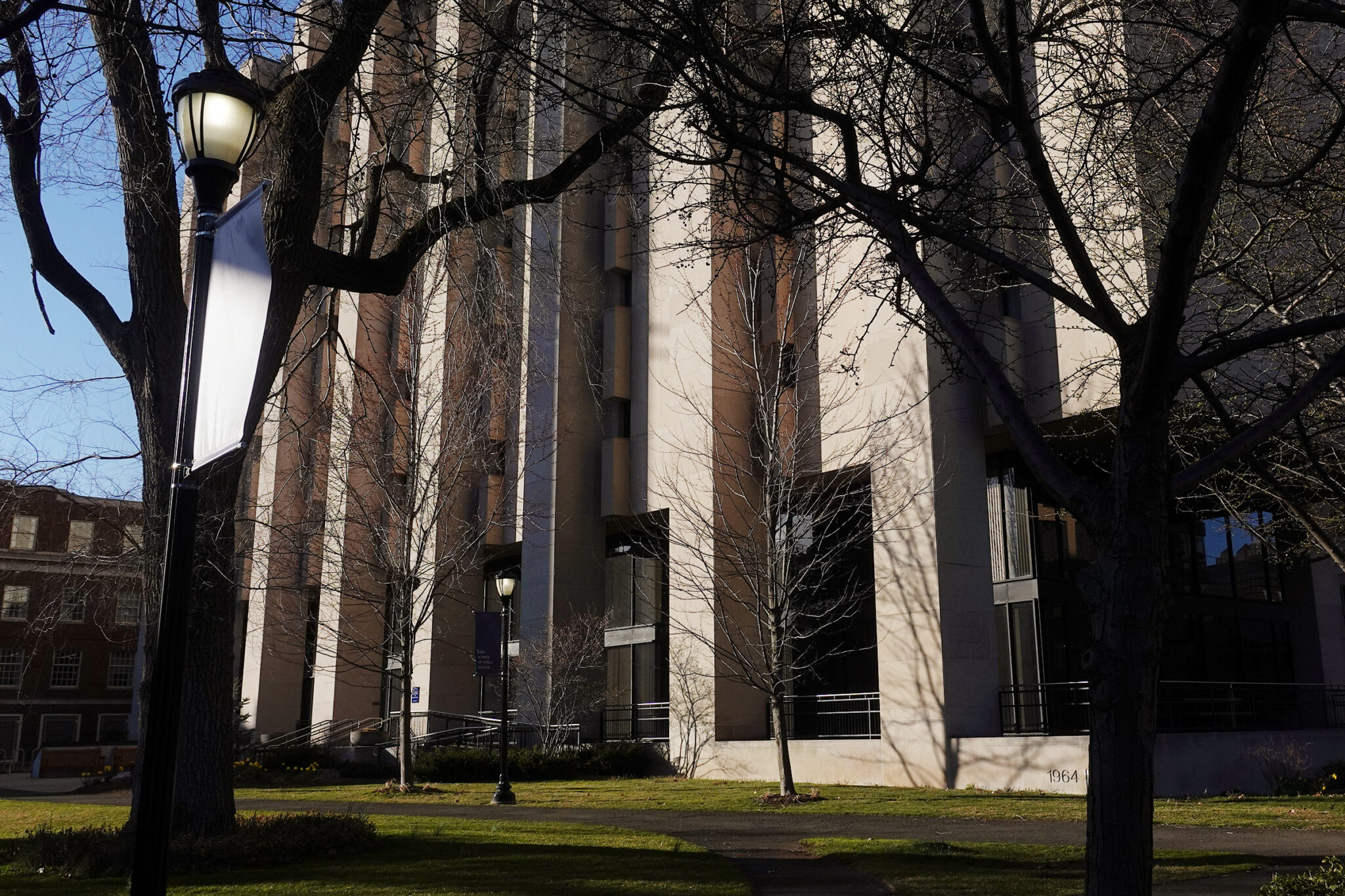Researchers study mental health issues among adolescents in American Samoa
A study out of the School of Public Health was one of the first to delve into the intricacies of mental health issues of American-Samoan youth; the findings will help create a framework on how to improve mental health services and infrastructure in the community.

Tim Tai
In a recent study, researchers at the School of Public Health found that despite successful local efforts to improve mental health infrastructure, more steps must be taken to combat mental illness among adolescents in American Samoa.
The study was primarily led by Emma Mew GRD ’25, a doctoral candidate studying chronic disease epidemiology, in tandem with her faculty advisor Nicola Hawley, an associate professor of epidemiology and an affiliated faculty member at the Yale Institute for Global Health. Mew and Hawley worked in collaboration with Jueta McCutchan-Tofaeono, a clinical psychologist in American Samoa.
McCutchan-Tofaeono praised the study for its cultural sensitivity to American Samoan culture.
“Being a Samoan mental health professional who was trained in the US, I was always struck by the extremely limited disaggregate data on Pacific Islanders,” McCutchan-Tofaeono wrote in an email to the News. “Even articles that included the term ‘Pacific Islanders’ enumerated little if anything at all on the unique needs of Native Hawaiian/Pacific Islanders … Rather than taking traditional Western models, normed on Western values, and attempting to make them fit, this research allows us to start from the ground up, to really understand the unique needs of our own people.”
“To our knowledge, this is the first scientific study published on youth mental health in a Samoan context,” Mew wrote in an email to the News. “This study took a community-directed approach that gathered perspectives from local leaders … [and] showed that mental health is a major health issue among youth — including a high suspected prevalence of suicidality, depression, anxiety, trauma and stressor-related disorders.”
Hawley, whose research lab is entitled the “Samoan Obesity, Lifestyle and Genetic Adaptations Study Group,” has researched topics on American Samoa for over ten years. While her research typically focuses on treating and preventing obesity and diabetes in resource-poor and low-income populations, the idea for this particular study came about with the realization that effective interventions for diabetes and obesity also require a foundational understanding of the population’s mental health.
When conducting the study, the researchers followed a Samoan framework of research called Fa’afaletui, which researchers from the University of Auckland translated as ‘‘‘ways of’ [fa’a] ‘weaving together’ [tui] deliberations of different groups or ‘houses’ [fale].’’
This research framework aims to be more culturally sensitive than many North American and Anglo-European research models, allowing researchers to hear the perspectives of different groups in the society of interest to minimize their own cultural biases before drawing final conclusions.
Keeping the ideas of Fa’afaletui in mind, the researchers conducted 28 in-depth interviews with adults living in American Samoa. Each interview began with the same question: “Can you tell me about your thoughts on the state of mental health among adolescents in American Samoa?” The conversations often revolved around common mental health problems observed in American-Samoan youth, including depression and anxiety, alongside stressor-related psychiatric disorders.
The researchers acknowledged that while most adolescents seemed to excel in their work, faith and communities, many still struggled with mental health issues, including suicidal ideation. In addition, many participants noted that mood disorders, substance use and non-suicidal injury are also common.
Additionally, many interviewees expressed their frustration with existing services that treat adolescent mental health issues. In response, the researchers identified multiple common needs and policy proposals that need to be addressed.
The researchers recommended adding more mental health professionals and strengthening case identification to bolster existing mental health services, reducing barriers for adolescents needing treatment and maintaining consistent funding to increase the sustainability of the project. Ultimately, the researchers called for increased collaboration and communication between local leadership on adolescent mental health challenges.
Hawley acknowledged that the most challenging part of the study was hearing about how a community she cares so deeply about is affected by mental health issues. Still, Hawley praised the American Samoan community for their efforts and dedication to improving mental health services for adolescents.
“[T]he biggest takeaway for me was the incredible strengths that lie in the community organizations supporting mental health in American Samoa,” Hawley wrote in an email to the News. “They are already achieving remarkable things with very few resources, but with consistent funding and political support, [they] could do much more.”
Pew also noted that it was difficult to ensure that the study adequately featured the locals’ voices, given the paper’s limited word count. Nevertheless, she said that the process of conducting these interviews was extremely rewarding, as it allowed her to hear many different perspectives and build diverse connections with members of the American Samoan community.
Sarah Lowe, a clinical psychologist and an associate professor of public health in social and behavioral sciences, helped develop interview questions related to mental health and interpreting data from the interviews. Lowe hopes that the themes they gathered in the interviews will encourage other researchers and policy workers to brainstorm models for mental health treatment.
“We have surveyed existing interventions and have come to the conclusion that none fully meets the community needs,” Lowe wrote to the News. “We are therefore hoping to culturally adapt an intervention that would include parents and children, with the goal of improving family wellbeing and decreasing youth’s mental health symptoms.”
According to the United States Census Bureau in 2020, American Samoa has a population of 49,170.
Update, Feb. 12: The article was updated to include quotes from Jueta Mccutchan-Tofaeono.







